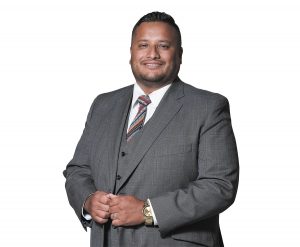Subscriber Benefit
As a subscriber you can listen to articles at work, in the car, or while you work out. Subscribe Now
Burke Costanza & Carberry LLP
Valparaiso University School of Law, 2015
Why did you decide to enter the legal profession?
I worked at U.S. Steel prior to going to law school. I attended Purdue University Northwest during the day and worked the midnight shift at U.S. Steel as a craneman. During that time, I developed the feeling that in order to create the change I wanted and assist my community, I would need to obtain the tools for that change. The legal profession was the best choice for me.
What does “diversity, equity and inclusion” mean to you?
The creation of a space where different genders, races, nationalities, sexual orientations and identities are valued and equally influential.
How did you get involved in DEI work, and why have you stuck with it?
“We cannot seek achievement for ourselves and forget about progress and prosperity for our community.”-Cesar Chavez. My work in DEI began through my immigration practice. I was contacted by various community organizations to speak at community gatherings. I found supporting my community fun and fulfilling. I quickly noticed a void in my community. Until I can help others fill the void and I am no longer needed, I will continue the work.
What would you say to someone who perceives “DEI” as a business “buzzword”?
This is a hard question. I think I would tell him they are right. But it is not those three words that matter. It’s the results of the work that matter. Everyone should feel valued and treated fairly.
What is the most significant change you’ve seen in the legal profession since you began your career?
I’ve only been practicing law since 2015, so it is difficult for me to answer this question. Instead, I will focus on what I believe is a glaring issue that needs to be addressed and requires significant change: the lack of diversity within the judicial branch.
What’s the best advice you’ve ever received?
Speak a little louder than everyone else with an air of confidence. This advice was given to me by my late friend, professor Valentino Martinez.
How do you spend your free time?
I enjoy visiting vintage and art shops and collecting Latino-inspired art. My wife and I favor a few shops locally and especially enjoy a few in the Pilsen neighborhood of Chicago.
What was your favorite — and least favorite — class in law school?
Least favorite: Tax Law. A week into class I wondered if there were people who actually liked the area of law.
You’ve been a leader in the Lozano Bar Association. Why was it important to you to be involved with that group?
The group actually predated me by quite some time as an informal bar association meant to serve the same purpose. Under my presidency I simply formalized it under its current name and structure. The importance of the group are its members. They are my friends, colleagues and mentors.
How did you get involved in immigration law, and why have you stuck with it?
A good friend of mine volunteered at a local church that was predominately Latino and undocumented. He asked me for a coffee at the church and explained the congregation’s needs. I left that meeting a bit overwhelmed but inspired. The continuation of my immigration practice is due to my enjoyment in assisting individuals in gaining lawful status. My practice mainly revolves around family and humanitarian immigration. I have recently expanded into H-2B, temporary nonagricultural workers. I hope to continue to expand my immigration practice. I find the practice rewarding.
Please enable JavaScript to view this content.
